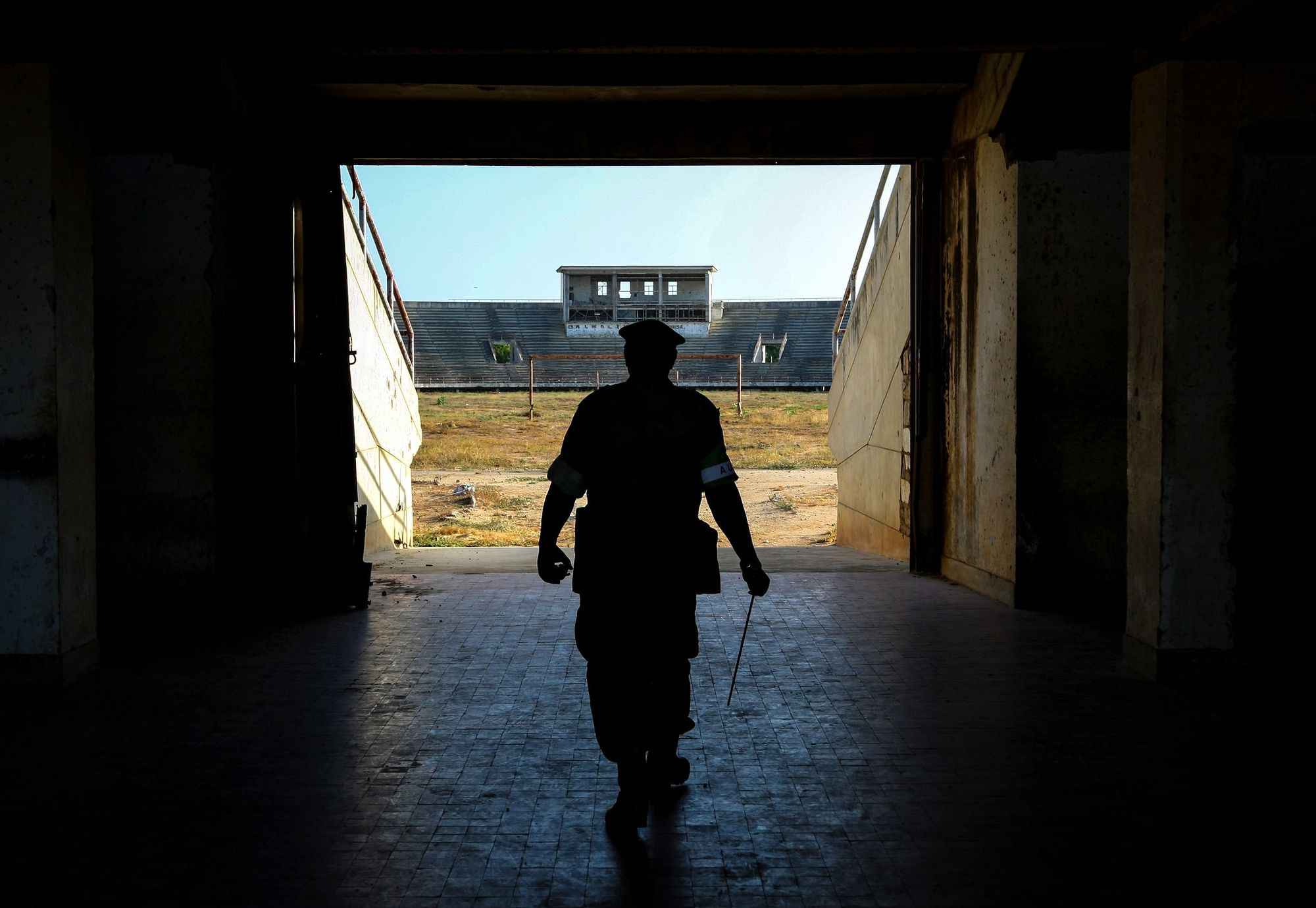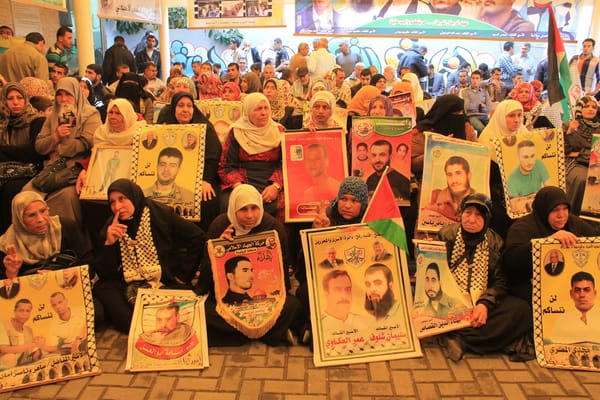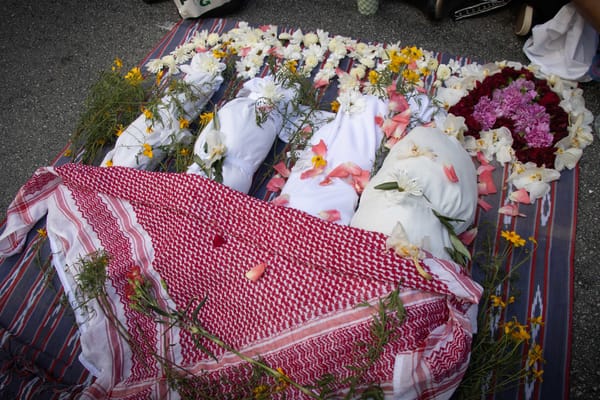The stories journalists and powerful, legacy media institutions devote time and resources to covering reveal deep truths about the profession.
For one, the editorial process reveals a set of priorities, functioning as a barometer of the things, places and people “we” ought to grant importance. The arrangement makes clear the people and communities we believe deserve to be heard. Of course, the same is also true in the inverse, of the stories and people we ignore. About the corners of the world we invisibilize.
This analogy of invisibility is not to suggest people don’t exist and thrive in places ignored by the mainstream media, as we all know they do. But rather it’s an attempt at acknowledging the specific way in which the editorial process prescribes value and grants importance. And the way this editorial system has decided that much of the world is undeserving of curiosity, rigour or attention.
It’s under this premise that I believe the African continent — home to the cradle of human civilization, 55 disparate nations, more than 1 billion people and the most genetic and cultural diversity on the planet — to be the single largest information black hole in the Canadian press today.
Depending on who you are, you might be shocked to learn that there’s but a single reporter (the Globe and Mail’s Geoffrey York) charged with covering Africa full-time at a major journalism outlet in Canada. Otherwise, the country’s largest journalism organizations — including CBC News, Global News, CTV News — have zero permanent presence on the continent. There isn’t a single dedicated reporter covering the world’s second largest continent between them.
The few “African stories” we do see emerge from these publications are a familiar sort, usually involving “state corruption,” ethnic violence, beautiful exoticized natural vistas and images of immiserated children. They are typically reported from the comforts of bureaus in cities like London, Berlin and other metros in the western core of continental Europe. As is custom, this brand of reportage routinely plays into age old stereotypes about African governance and society.
With that said, some might ask: Why should any reasonable Canadian care about stiffening foreign coverage in places like Cameroon or Ethiopia, when our press has yet to figure out best practices for covering Indigenous communities here? Questions like these fail to recognize the degree to which the world’s affairs are connected. Ongoing colonial violence, land theft, democratic interference and aid patronage are all bound to a single string, both at home and abroad.
Our aversion to African stories has helped the political and media class in our country slowly extricate these connections from the historical record. This dynamic fuels the media tendency of falsely turning structural and systemic issues into individualized sob stories.
One such connection can be found in the fact that some of the global systems used to undermine and endanger African people on the continent were perfected on Indigenous people here first. One needs only look at the connections between South African apartheid and Canada’s reserve pass system for evidence. The fact is, the condition of much of the world was enshrined, naturalized and maintained by governments like ours. But this fact has been historically obscured by a press core unconcerned with reckoning with it.
The myths we tell ourselves about history and the world are bound to this media arrangement. With more coverage, for example, Canadians might begin to understand that South Africa wasn’t made perfect the moment Nelson Mandela emerged, smiling, from Victor Verster prison. Nor was apartheid settled the week or decade after Mandela was elected president. Just like the election of Barack Obama did little to resolve a history of apartheid in the United States.
These unsophisticated stories lead to unsophisticated ends. And unsophisticated ends are dangerous.
Africa’s Year Of Revolution
In her seminal work, Their Eyes Were Watching God, the American writer and anthropologist Zora Neale Hurston gave us one of the great passages of her career, writing, “There are years that ask questions and years that answer.” It’s in that spirit that the year 2020, and the first half of 2021, have offered us profound answers.
Before we explore Africa’s year of revolution, it’s important that the following is made very clear: as a society, we’re utterly fascinated by the machinations and inner workings of unrest. The shiny tools of uprising are fodder for the news media. Culturally, we sanctify and romanticize historical examples from both the ancient and modern world. Even this past decade has seen the mainstream media print a revolving door of haphazard reflections and analysis on events such as the Arab Spring.
More recently, in 2019 and 2020, we saw the world’s media intently broadcast every angle of protests in Hong Kong. A fight we were told, again and again, was an ennobled march toward democracy. Yet this same news mechanism, and our collective interest in social revolution, managed to ignore a series of similarly fashioned contemporaneous uprisings across Sub-Saharan Africa.
Because of this media arrangement, it’s very likely that many people in Canada have simply not heard about the tides of revolution that have swept across the African continent. In recent months, nations like Mali, Cameroon, Nigeria, Uganda, Senegal, Chad, Ethiopia and others, have witnessed epochal political and social uprisings that stand to change the fabric of life on the continent for the foreseeable future. These are the kinds of events that would lead international news coverage had they happened nearly anyplace else in the world.
Why is it that aside from the work of York at the Globe, the Canadian media has been almost entirely silent about the worst war-time catastrophe in the world today, in Ethiopia? Why no Hong Kong-like coverage on Ugandan musician turned politician Bobi Wine, who despite a state-obstructed candidacy for president, became a global symbol for democracy? Or the youth and women-led social and political revolutions in Sudan, Algeria, Senegal and Nigeria that toppled autocracies and erected mass global solidarity movements?
What is it that makes Bobi Wine unworthy of the coverage we see accorded to Alexei Navalny? Or uprising in Senegal and Sudan unlike Hong Kong? Why is coverage or interest in total war in Ethiopia tenuous, while similar instability in Syria, Myanmar, Kashmir and Venezuela inspires such rigour? Why is revolution in Africa described in prehistoric and unorganized terms, while revolution everywhere else is described as an honourable attempt at establishing democracy or tearing down imperialism. How do we explain away the different outcomes in coverage, even when the nature of these events suffers little difference?
The Never-ending Cliché
Those of us that have engaged with mainstream Canadian journalism about African affairs have developed a sixth sense for the recurring clichés that always seem to attend discussions of the continent. Let’s begin with one we see a lot: African Corruption.
If you pay close enough attention, you’ll find that many times, the charge of “corruption” has been politicized and manufactured so as to only ever extend to certain parts of the world. In the West we use normalized language like “voter suppression,” “corporate interests,” “lobbying,” “big tech” and “redlining” to legitimize or couch state malfeasance. In the Global South there’s one catch-all shorthand used: “corruption.” The word is a menace almost only ever applied outwardly, in reference to countries and civilizations we understand to be much different than our own.
Political categorizations like “strongman” and “dictator” are subject to a similar frame. Bound in part by the supposedly neutral tenets of “objectivity,” many mainstream journalists believed the use of terms like “strongman” to be inappropriate when referencing United States President Donald Trump. Even referring to a comment of his as “racist” was tantamount to war in many newsrooms. These kinds of categorizations in the media are reserved for the likes of Robert Mugabe, Omar al-Bashir or Paul Kagame. Despite overseeing similar regimes of repression and scandal, the language of despotism has an explicitly racialized and selective usage.
Trump is a “firebrand,” or “unorthodox”; Kagame is a “dictator.”
Even as thousands of avowed Trump supporters lay siege to the U.S. Capitol, Canadian coverage was underwritten by the sense that “this doesn’t happen here.” Despite the fact that white male counter revolution is a core feature of the American story, coverage suggested, in no uncertain terms, that real coups, real political violence, real authoritarianism, happen someplace else.
My point is not that African leaders haven’t historically struggled with, or even been overcome by, authoritarianism. It’s only that countries like Rwanda and Zimbabwe don’t have a monopoly on despotism, and there’s no reason for our language to suggest otherwise. This doesn’t mean words like “totalitarianism” and “corruption” shouldn’t be used when fitting, but rather that they should be applied with consistency in both the African and American contexts.
Another example of the never-ending African cliché can be found in mainstream coverage of migration. It’s a story that has been reduced to a Manichean morality play, whereby hordes of unwanted and disposable Black Africans wrestle their way out of the continent’s hell, toward the salvation of Europe. Virtually no attention is paid to the historical context underlying these crises.
The Mediterranean Sea has become a central character in this morality play — cast incorrectly as a simple barrier between “them” and “us” — a proverbial moat around Europe’s fortified castle. The press doesn’t situate the Mediterranean in its appropriate context: as a de facto sacred site and unmarked burial ground for the thousands of African migrants who die in her waters every year. The fact that migrant travel across the Mediterranean is facilitated by body snatchers and slave catchers, constituting a modern middle passage, is also discussed little.
With some refocusing, coverage of African migration would feature less garish images of flooded dinghies and human suffering, and centre more closely on the umbilical nature of human passage. It would look more seriously at the fact that many African asylum seekers who die at sea — like the Libyans and Eritreans who migrate to Italy annually — do so in an attempt to enter the very colonial countries responsible for the ruinous conditions that forced their passage in the first place. As Jamaican-British theorist Stuart Hall observed, “We are here because you were there.”
Instead of this turn to history, we proffer unsophisticated and simplistic coverage of African migration that perpetuates a racist “inundation metaphor.” The phenomenon gives viewers the false perception that virtually entire populations across the Global South lie in wait, and would storm the gates of the West if given the chance. The fact that statistics show the majority of African migrants don’t aspire to enter the West, but rather travel freely within Africa, is, again, not mentioned. This narrative doesn’t comport with our unsophisticated civilizational story.
Additionally, in a year we saw a pandemic sweep its apocalyptic winds across the world, many bewildered news agencies wondered out loud why more African people weren’t dying from COVID-19. They didn’t ask why health infrastructures in countries like Rwanda proved successful, or about the advances in science or tech that had permitted this success. The upshot was simple: Why didn’t more African people die? As political analyst Nanjala Nyabola wrote last year, imbued in such stories is “the expectation that when the world suffers, Africa must suffer more.”
Even today, discussion of COVID-19 is undergirded by a sense that the worst of the virus is behind us, and we will soon be restored to normal by the grace of vaccines and modern science. What isn’t mentioned as much are the Western oligarch-backed global health networks currently presiding over a global apartheid-like vaccine distribution system. A system that threatens to compromise the lives of millions in the Global South while christening Western countries like Canada with excess.
Taken together, these sorts of stories reveal that among us, in this country and across the mainstream news landscape, both conductors and consumers of the news share an appetite for African failure and death. Though contemporary academic analysis of this is ongoing, there are decades of data that prove this claim true.
One 1998 study found that over a 40-year period, 73 per cent of the New York Times’ reporting on African affairs indulged in negative stereotypes and images of the continent. A 2008 study, meanwhile, found that a majority of stories about Africa “by four US television news-casts […] between 2002 and 2004” focused on a predictable confection of topics such as conflict, terrorism, disaster and disease. And, as author Virgil Hawkins wrote in 2018, “Even within news about conflicts, the more positive aspect of peacemaking is less likely to be covered for conflicts in Africa than it is for conflicts in the Middle East.”
The unfortunate irony of my writing this today is that we find ourselves in the midst of a golden age of African digital media. There’s a robust economy of African writers and thinkers, of which outfits like The Continent, Africa Is A Country, and The Africa Report, are shining examples. But despite this, the mainstream genre of African storytelling remains accompanied by prominently featured non-African voices and interests.
Our journalists continue to rely on European or American bureaucracy to render Africa legitimate. If organizations like the United Nations or Human Rights Watch haven’t first declared an issue in Yaounde, Cameroon, or Mogadishu, Somalia, as important, journalists here are unlikely to consider them worthy of coverage. In the Canadian press, African affairs must first be validated by white people before we care.
On our accord, the African continent has been studied, observed and patronized to death. We have seen the humanitarian ‘white saviour’ trope play out in innumerable ways, by self-styled “conflict journalists” who parlay the chaos and destruction of the “third world” into career fodder and splashy awards. Even the language we use to animate the continent isn’t without its issues: phrases like “third world,” “developing world” or “emerging market country,” create a distance between the communal “us” and far flung “them.” The media have a hand in helping create Africa as a place for Canadians to frame themselves in opposition to.
Generations of Canadians have been conditioned to see disorder and catastrophe on the continent as a permanent and naturally occurring condition, helping to generate what philosopher Susan Moeller refers to as “compassion fatigue.” This is what happens when death and disaster are widely cast as unsolvable, or native to the land itself. Entire societies become unworthy of public attention and editorial investment.
A more thorough and honest media attempt at documenting African affairs today would reveal the degree to which this condition continues to be manufactured by forces outside of Africa, codified via regimes of natural resource extraction, the theft and hoarding of African cultural production, aid and debt patronage, and expanding military domination. The African condition is not evidence of a natural order, it is a policy outcome.
What Next?
In just the past year, the corporate media have taken part in an onslaught of anti-racist messaging. There were promises to hire more racialized staff, promote previously overlooked talent, apologize for previous reporting and reassess coverage moving forward. Last year, I wrote about why I believed much of this to be corporate strategy, and mentioned that without a real desire to transform the scaffolding of our industry, these measures would stand to integrate racialized journalists — specifically Black Journalists — into a burning house. One year on, my opinion is unchanged.
It’s impossible for news leaders to indulge in BLM or diversity messaging while refusing to properly cover an entire continent of Black people. Any honest attempt at change first demands an understanding and honouring of the sundry and profound interconnections between Black people, and all people, wherever they are. In Africa, Latin America, the Caribbean, Canada or in your city centre. This will take well-resourced reporting, and a fundamental desire to broaden the aperture we use to colour our understanding of the world.
The liberal media clutched their collective pearls when Trump referred to African countries as “shitholes,” despite the fact that his words are reaffirmed by that same media apparatus with the printing of every paper and airing of every broadcast.
It’s past time we begin to invest in a true examination of the world. Not one wrapped in cliché and caricature.
In the words of Indi Samarajiva, “The third world from the sun is earth. You live here too.”







Member discussion